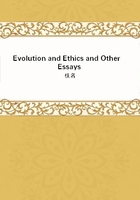
第59章
Technical education, in the strict sense, has become a necessity for two reasons. The old apprenticeship system has broken down, partly by reason of the changed conditions of industrial life, and partly because trades have ceased to be "crafts," the traditional secrets whereof the master handed down to his apprentices. Invention is constantly changing the face of our industries, so that "use and wont," "rule of thumb," and the like, are gradually losing their importance, while that knowledge of principles which alone can deal successfully with changed conditions is becoming more and more valuable. Socially, the "master" of four or five apprentices is disappearing in favour of the "employer" of forty, or four hundred, or four thousand, "hands," and the odds and ends of technical knowledge, formerly picked up in a shop, are not, and cannot be, supplied in the factory. The instruction formerly given by the master must therefore be more than replaced by the systematic teaching of the technical school.
Institutions of this kind on varying scales of magnitude and completeness, from the splendid edifice set up by the City and Guilds Institute to the smallest local technical school, to say nothing of classes, such as those in technology instituted by the Society of Arts (subsequently taken over by the City Guilds), have been established in various parts of the country, and the movement in favour of their increase and multiplication is rapidly growing in breadth and intensity. But there is much difference of opinion as to the best way in which the technical instruction, so generally desired, should be given. Two courses appear to be practicable: the one is the establishment of special technical schools with a systematic and lengthened course of instruction demanding the employment of the whole time of the pupils. The other is the setting afoot of technical classes, especially evening classes, comprising a short series of lessons on some special topic, which may be attended by persons already earning wages in some branch of trade or commerce.
There is no doubt that technical schools, on the plan indicated under the first head, are extremely costly; and, so far as the teaching of artisans is concerned, it is very commonly objected to them that, as the learners do not work under trade conditions, they are apt to fall into amateurish habits, which prove of more hindrance than service in the actual business of life. When such schools are attached to factories under the direction of an employer who desires to train up a supply of intelligent workmen, of course this objection does not apply; nor can the usefulness of such schools for the training of future employers and for the higher grade of the employed be doubtful; but they are clearly out of the reach of the great mass of the people, who have to earn their bread as soon as possible. We must therefore look to the classes, and especially to evening classes, as the great instrument for the technical education of the artisan. The utility of such classes has now been placed beyond all doubt; the only question which remains is to find the ways and means of extending them.
We are here, as in all other questions of social organization, met by two diametrically opposed views. On the one hand, the methods pursued in foreign countries are held up as our example. The State is exhorted to take the matter in hand and establish a great system of technical education. On the other hand, many economists of the individualist school exhaust the resources of language in condemning and repudiating, not merely the interference of the general government in such matters, but the application of a farthing of the funds raised by local taxation to these purposes. I entertain a strong conviction that, in this country, at any rate, the State had much better leave purely technical and trade instruction alone. But, although my personal leanings are decidedly towards the individualists, I have arrived at that conclusion on merely practical grounds. In fact, my individualism is rather of a sentimental sort, and I sometimes think I should be stronger in the faith if it were less vehemently advocated.
I am unable to see that civil society is anything but a corporation established for a moral object only--namely, the good of its members--and therefore that it may take such measures as seem fitting for the attainment of that which the general voice decides to be the general good. That the suffrage of the majority is by no means a scientific test of social good and evil is unfortunately too true; but, in practice, it is the only test we can apply, and the refusal to abide by it means anarchy. The purest despotism that ever existed is as much based upon that will of the majority (which is usually submission to the will of a small minority) as the freest republic.
Law is the expression of the opinion of the majority; and it is law, and not mere opinion, because the many are strong enough to enforce it.
In what follows I am only repeating and emphasizing opinions which I expressed seventeen years ago, in an Address to the members of the Midland Institute (republished in Critiques and Addresses in 1873, and in Vol.
I. of these Essays ). I have seen no reason to modify them, notwithstanding high authority on the other side.